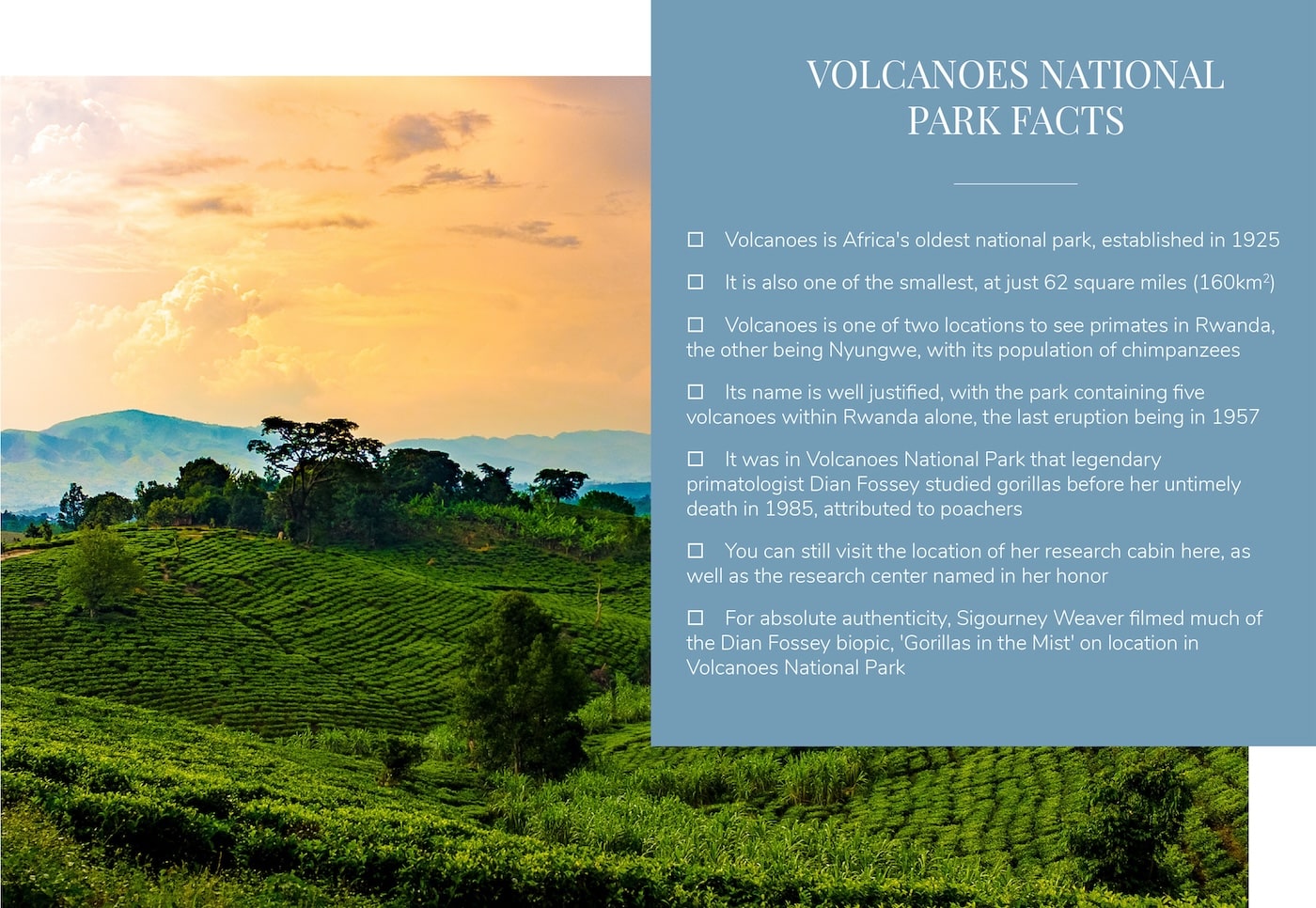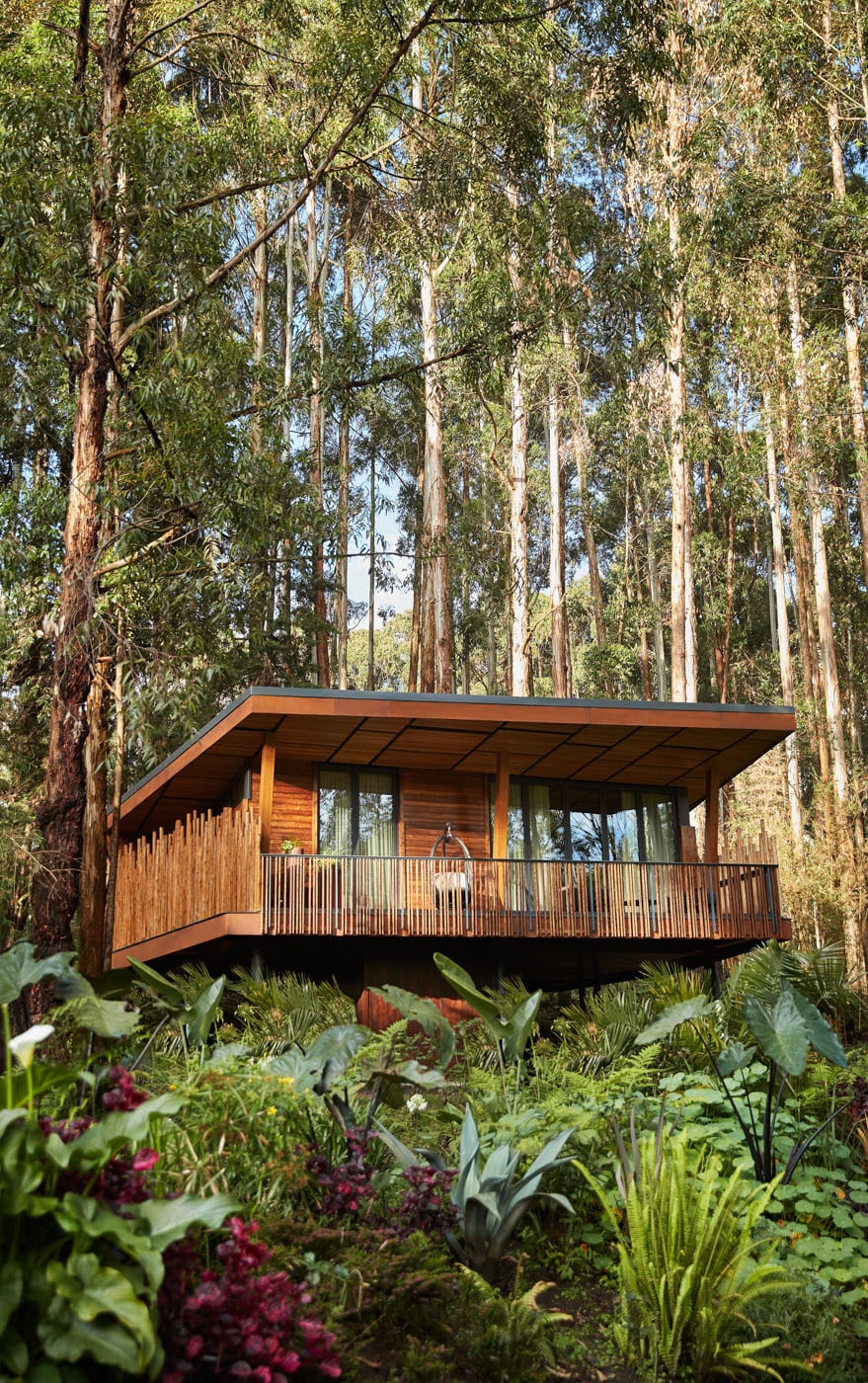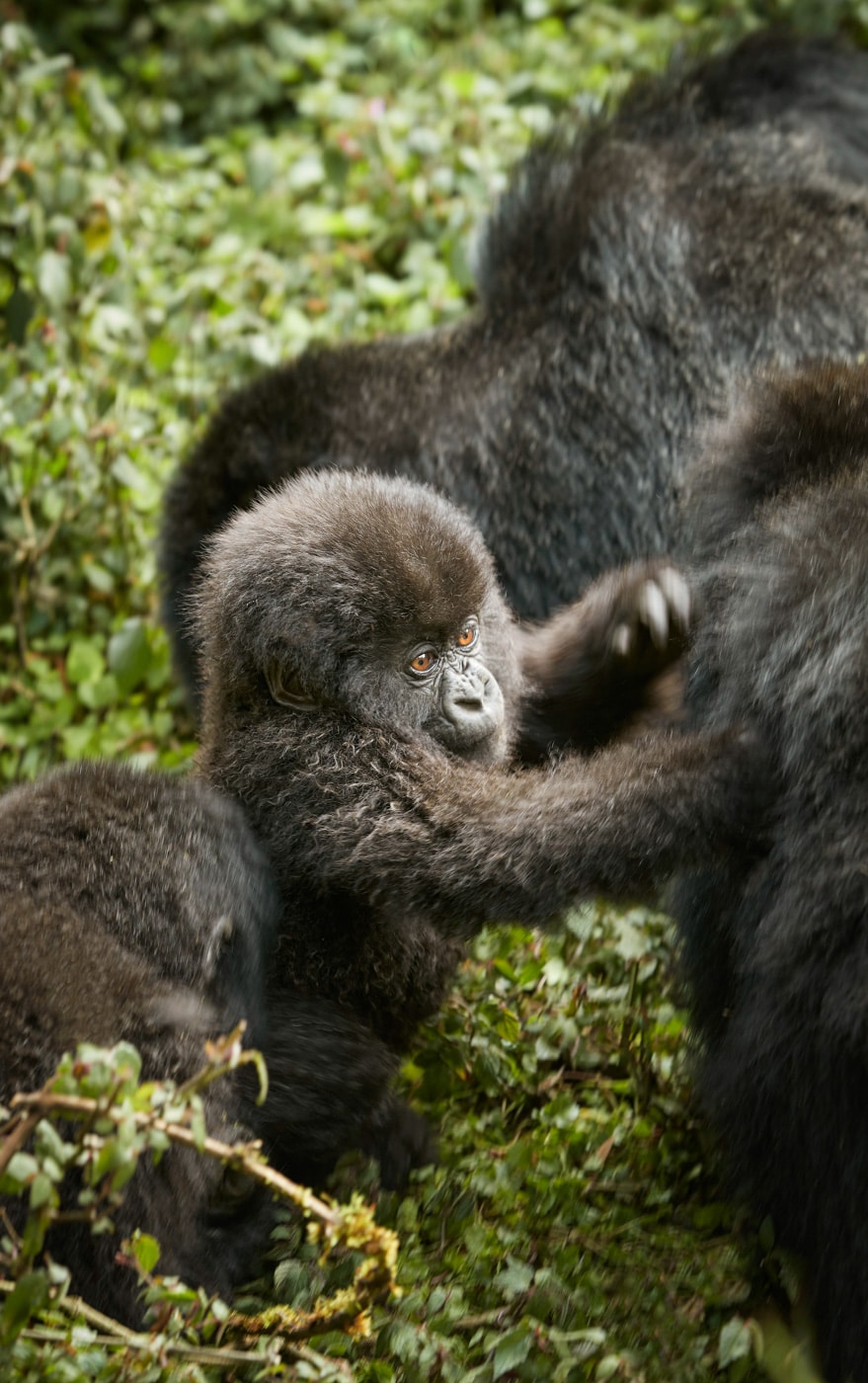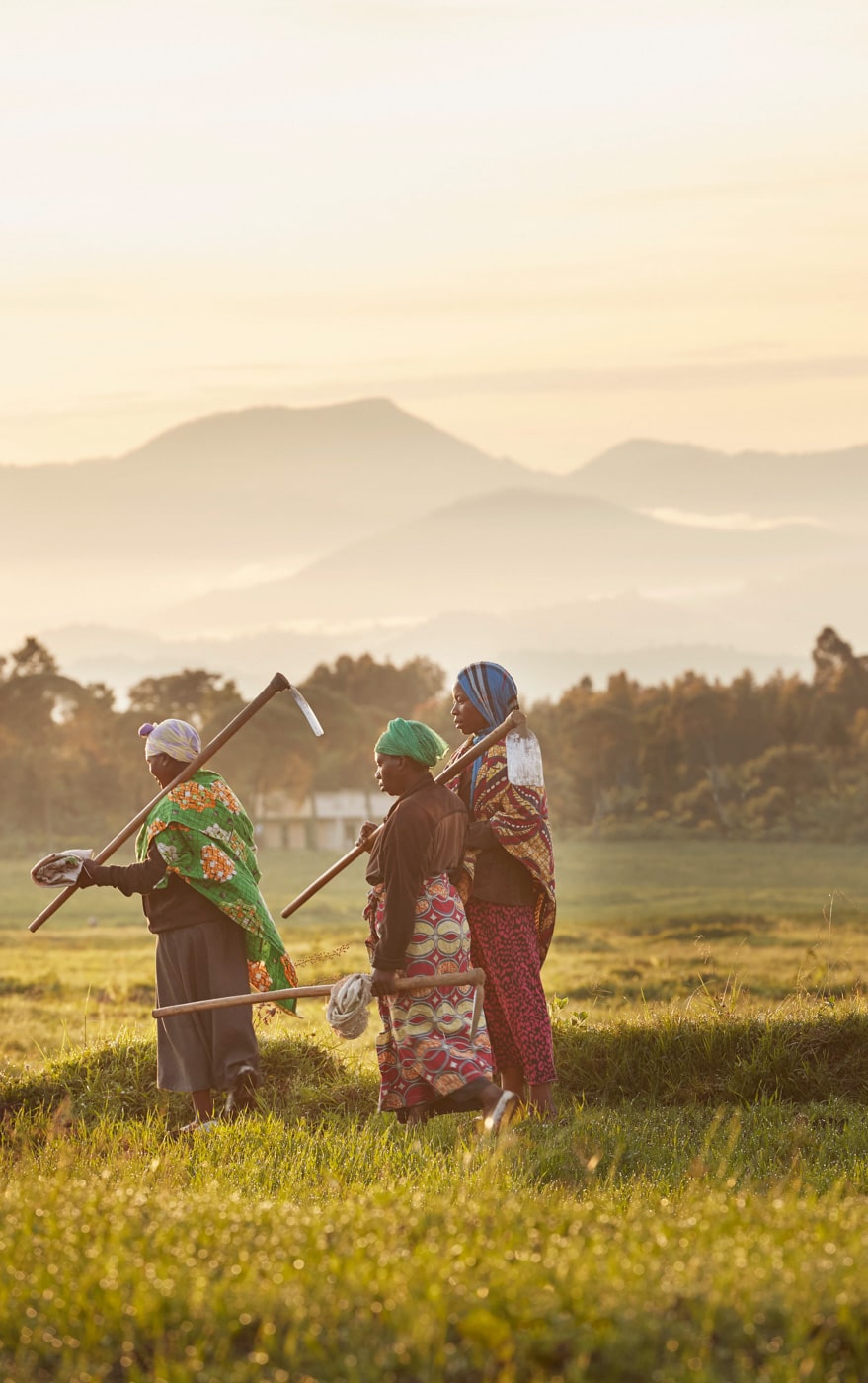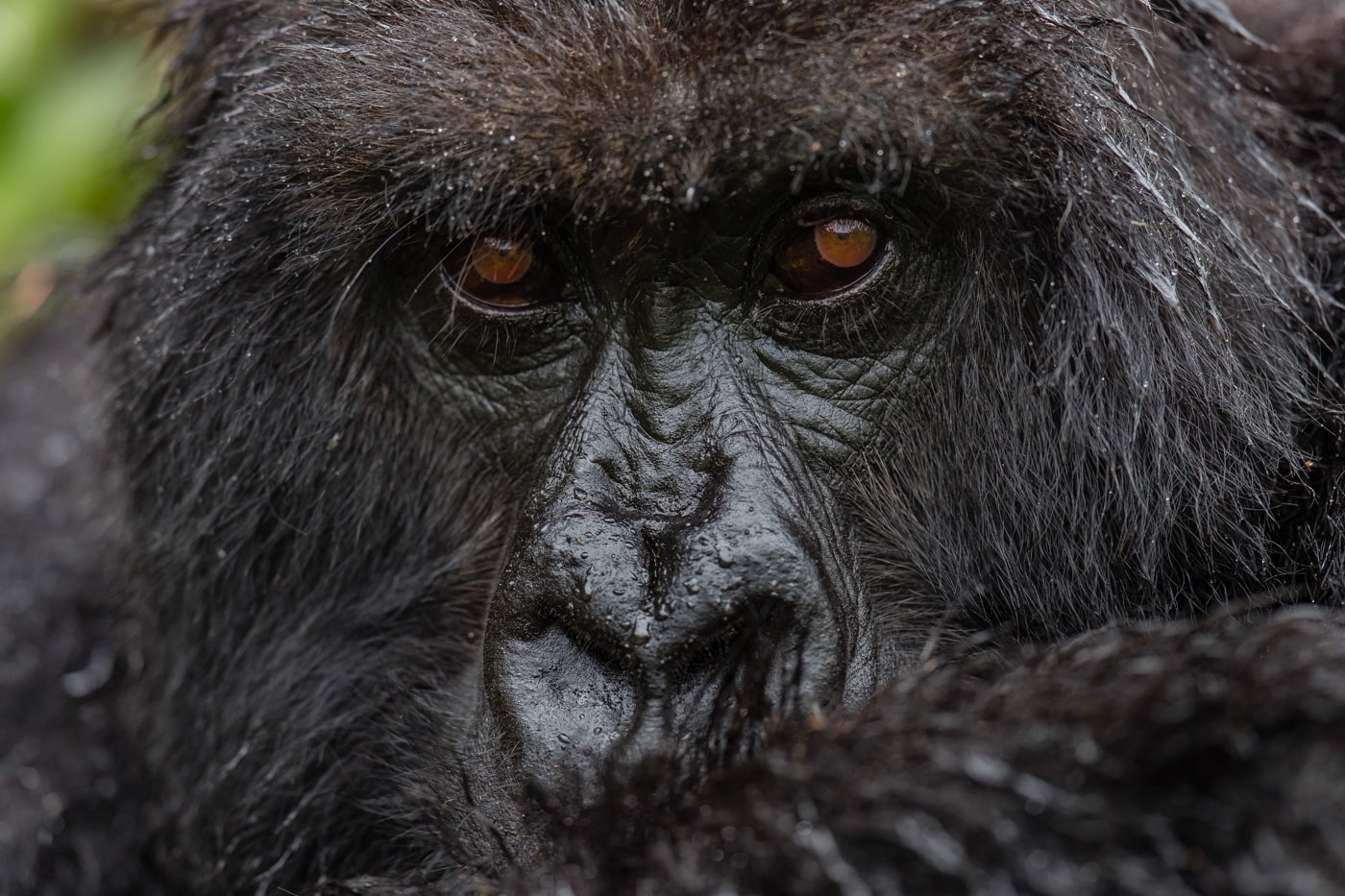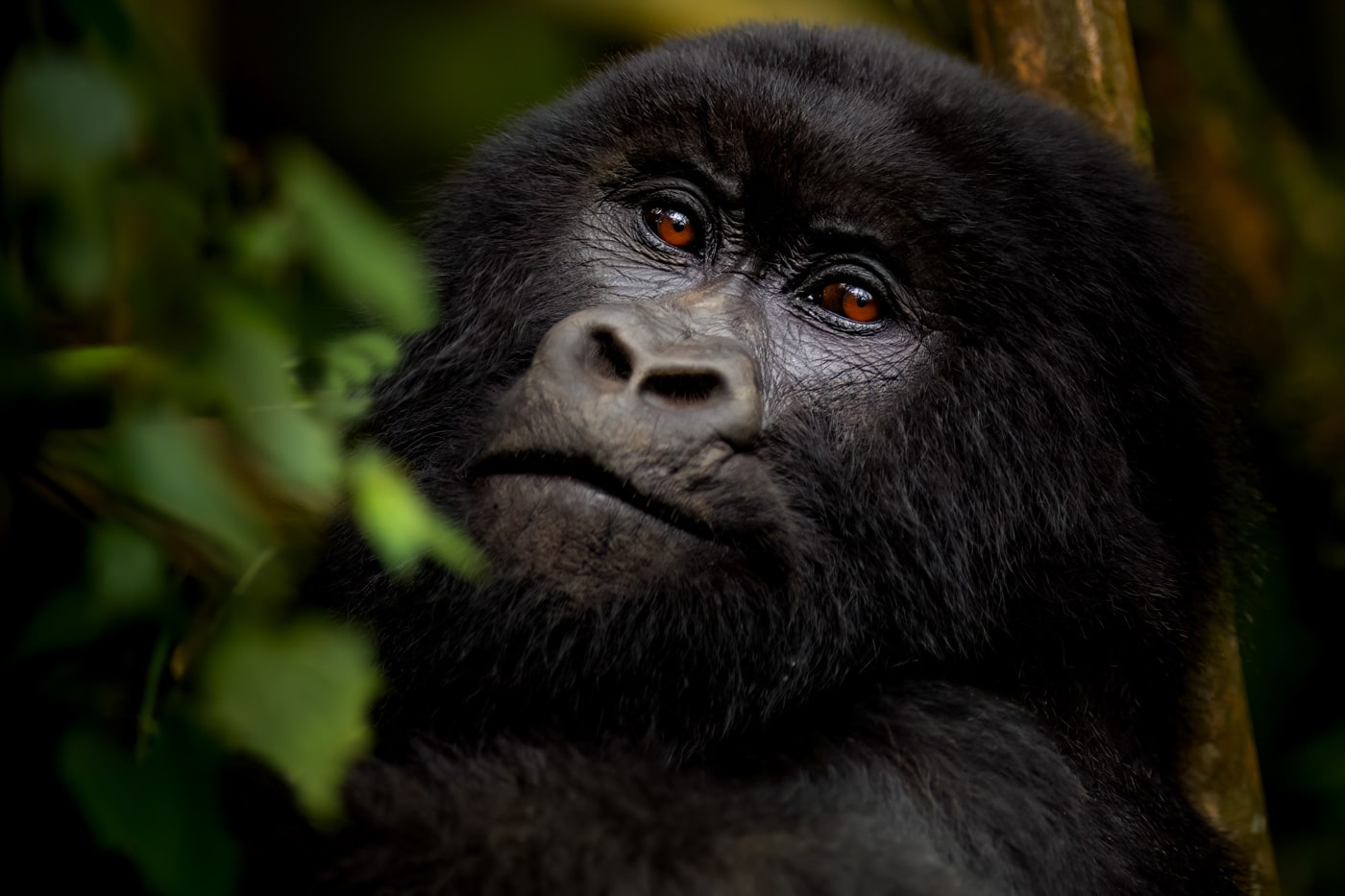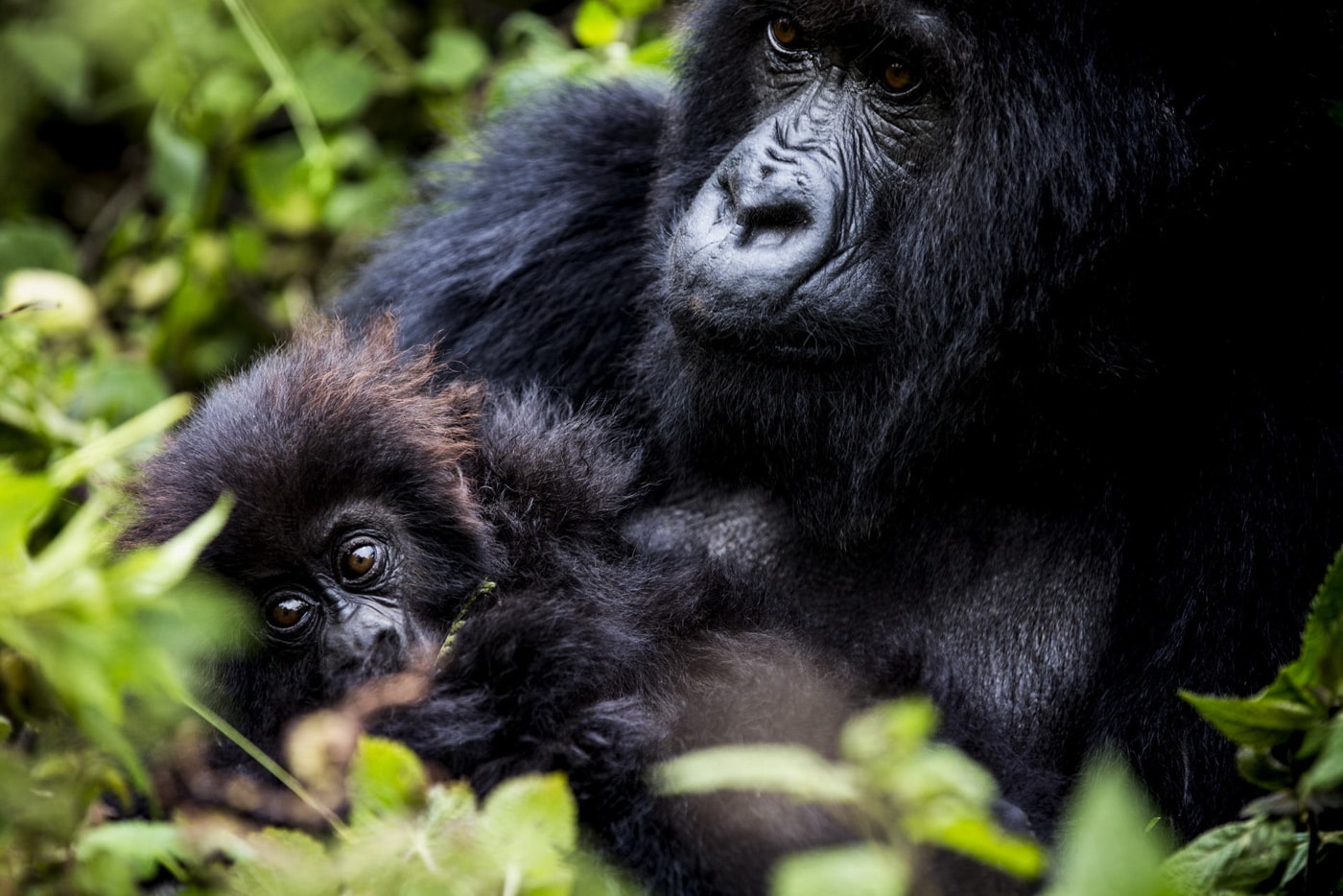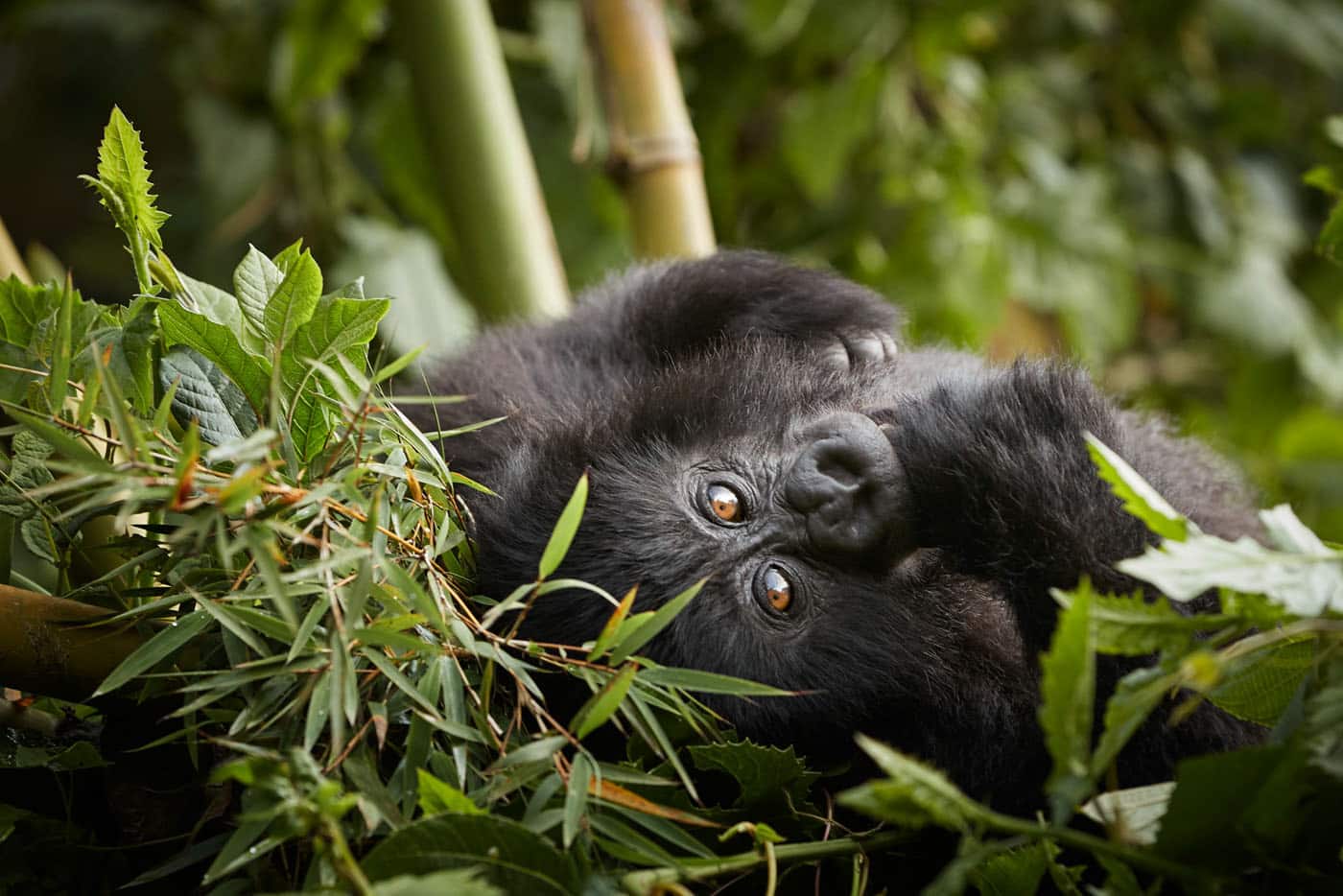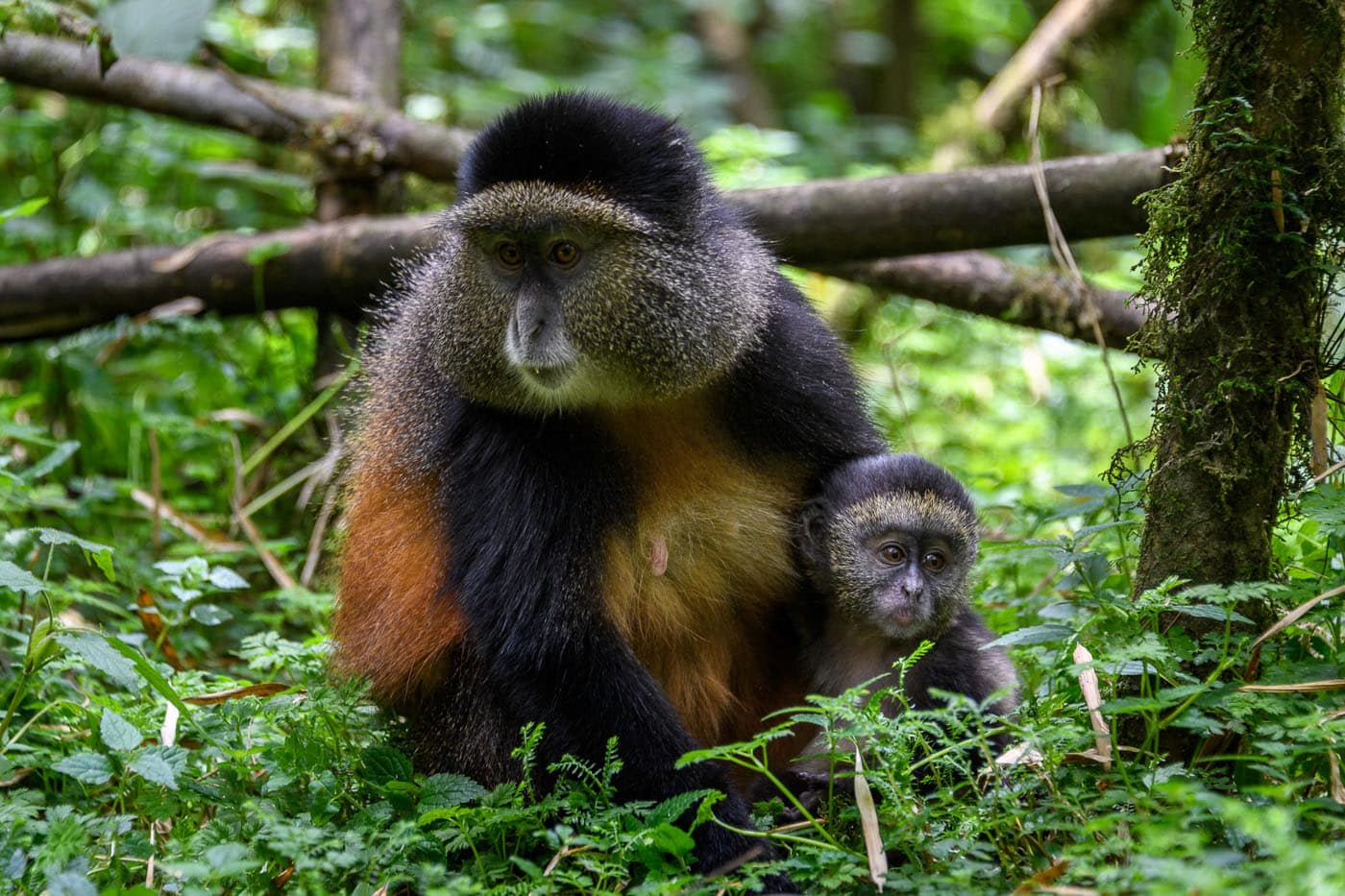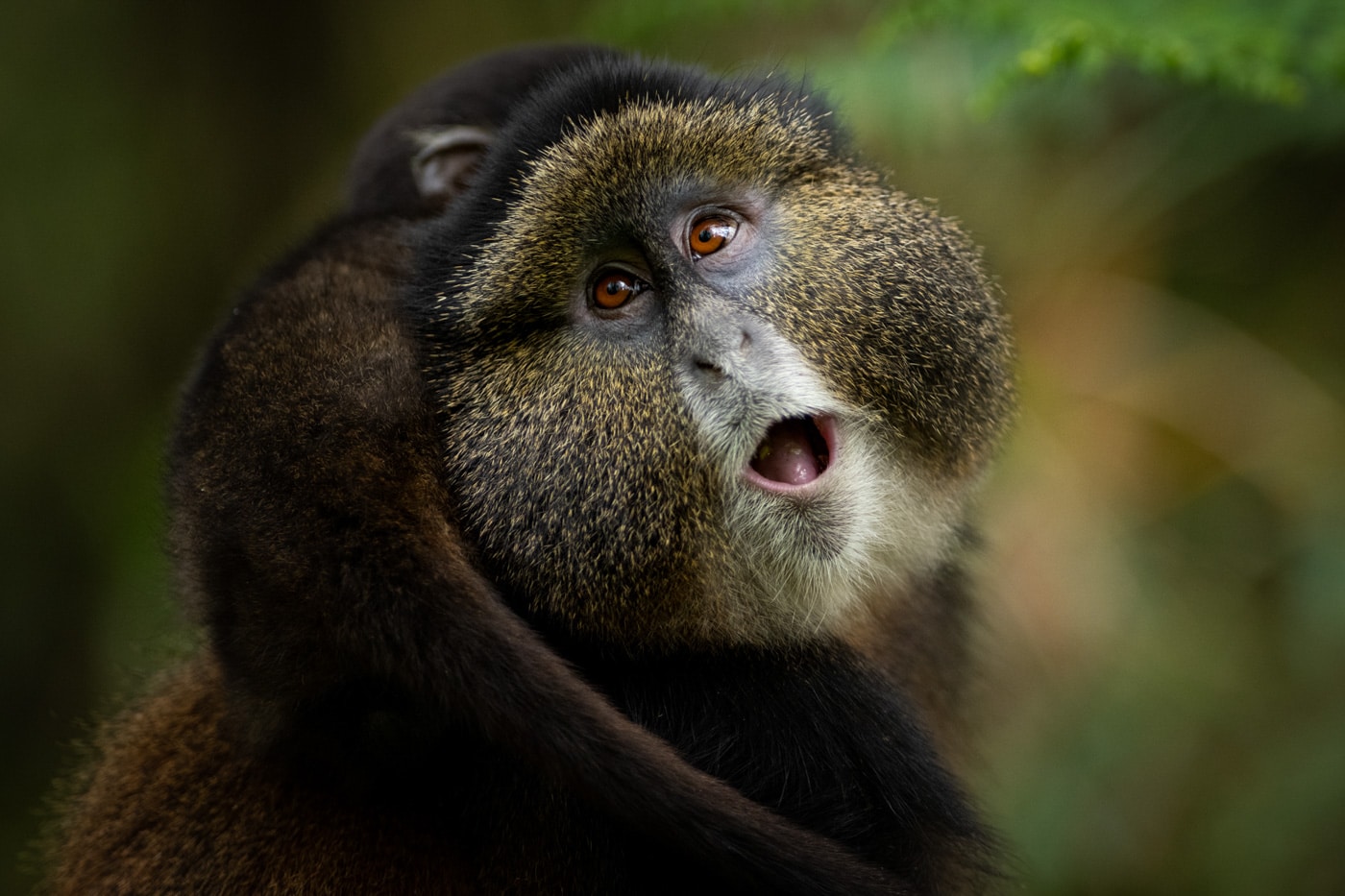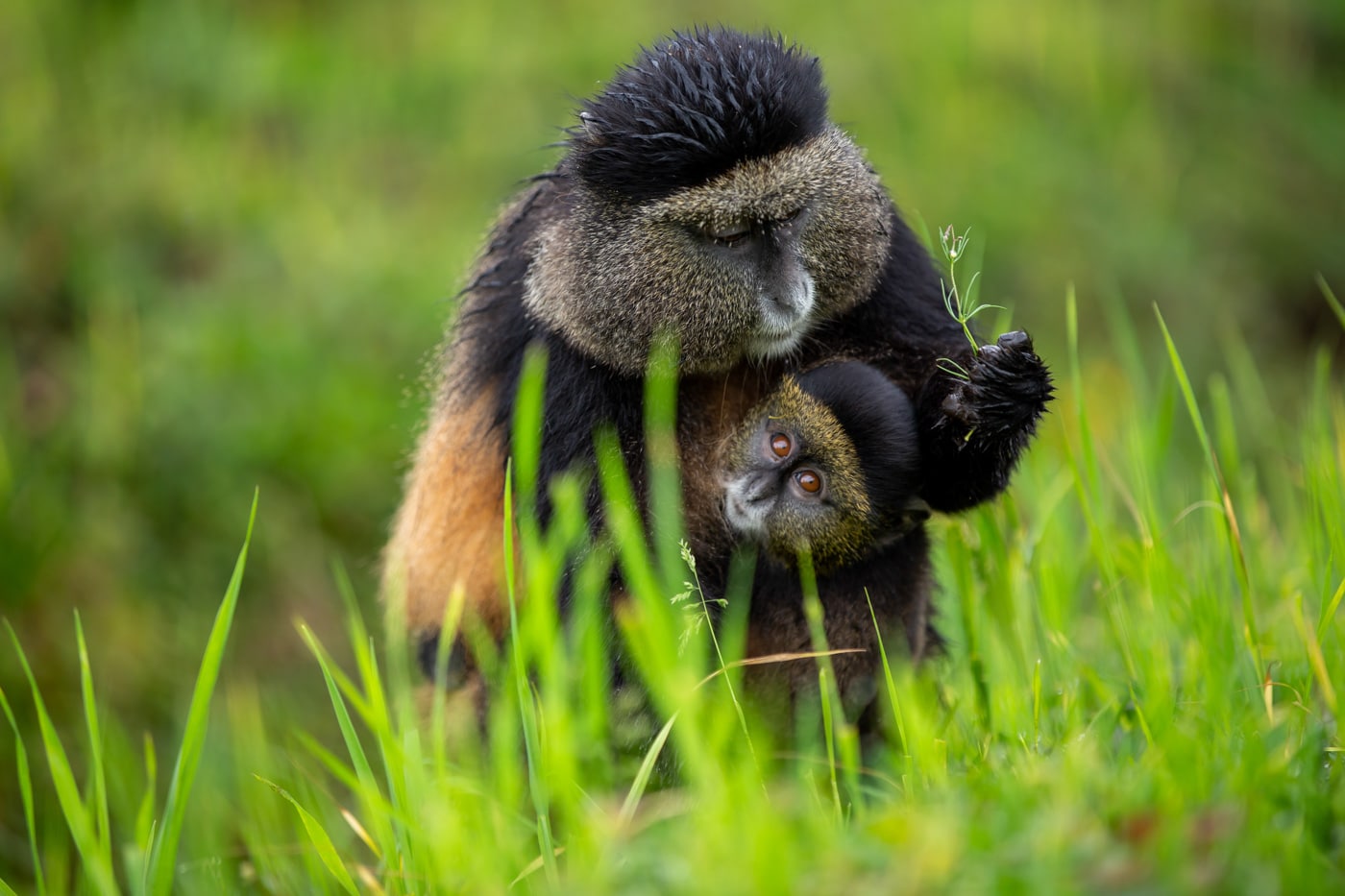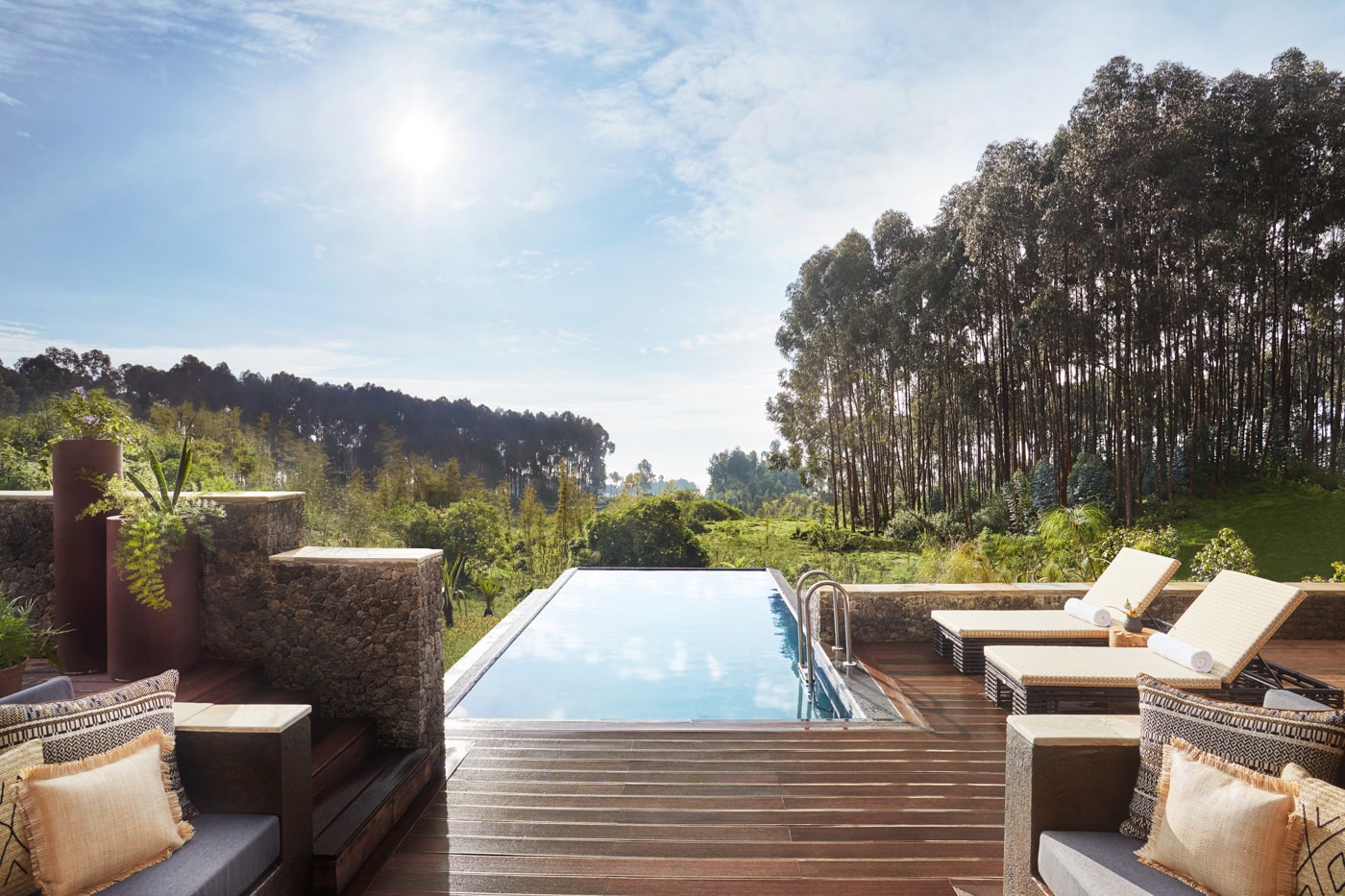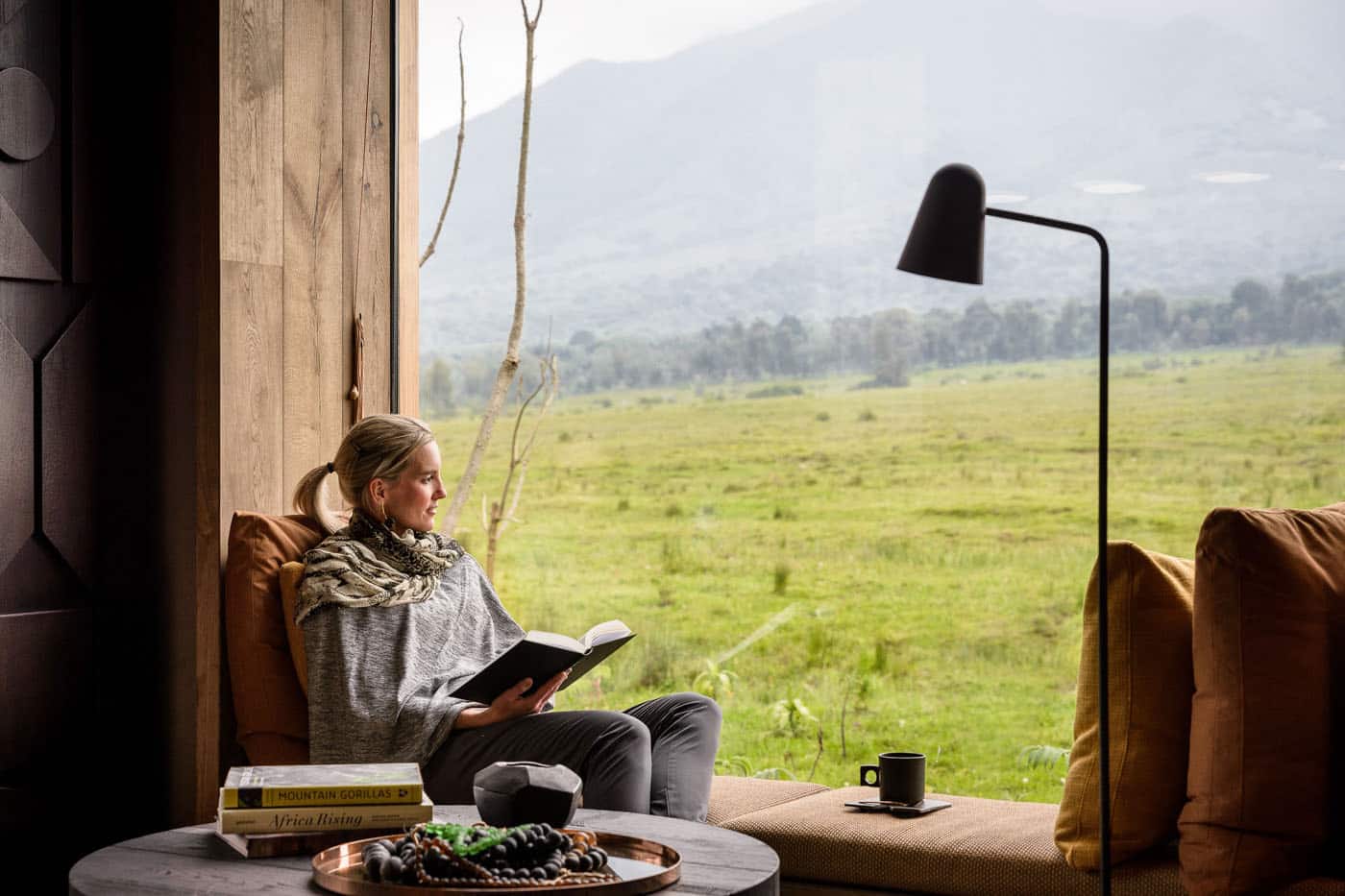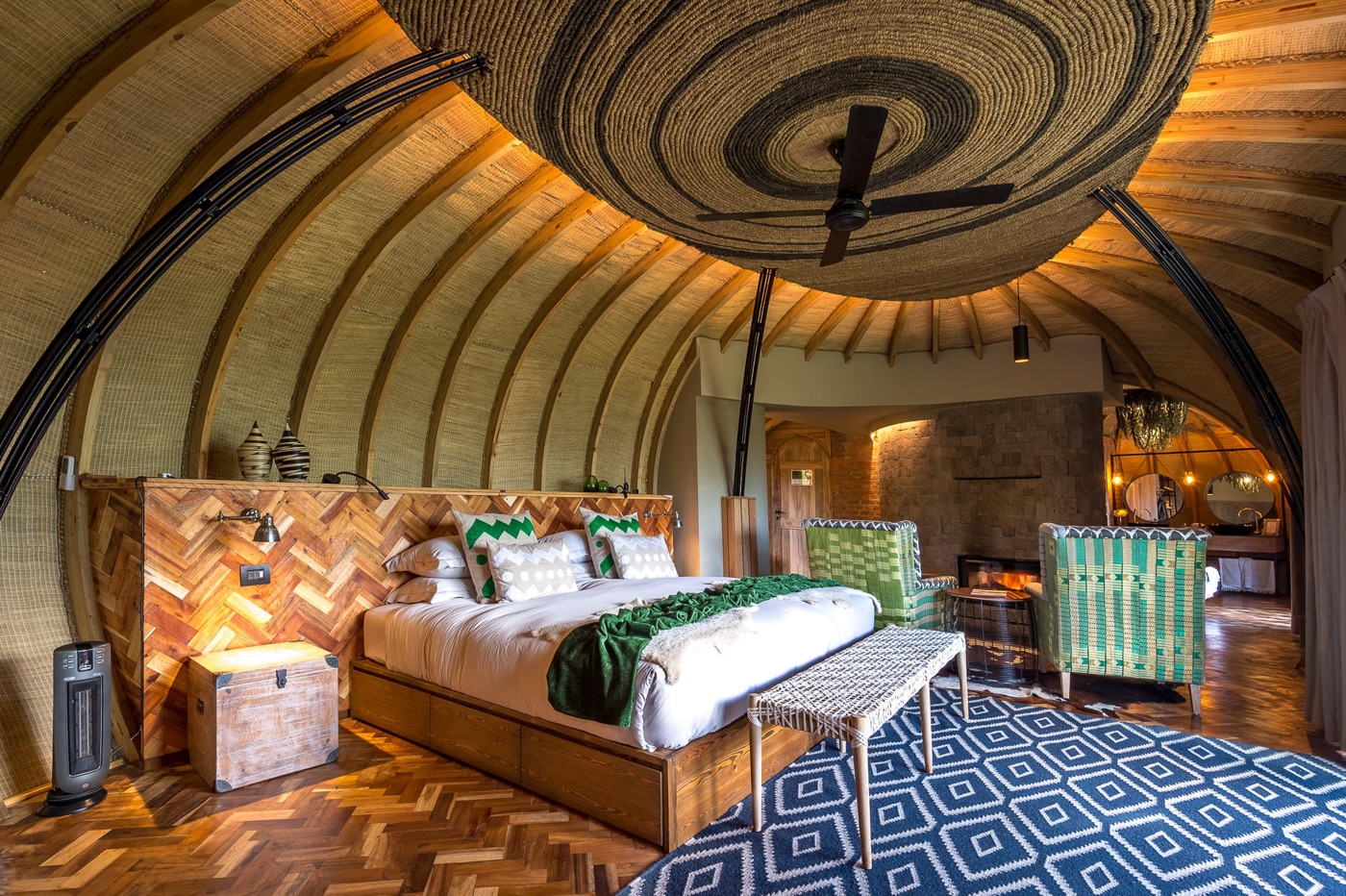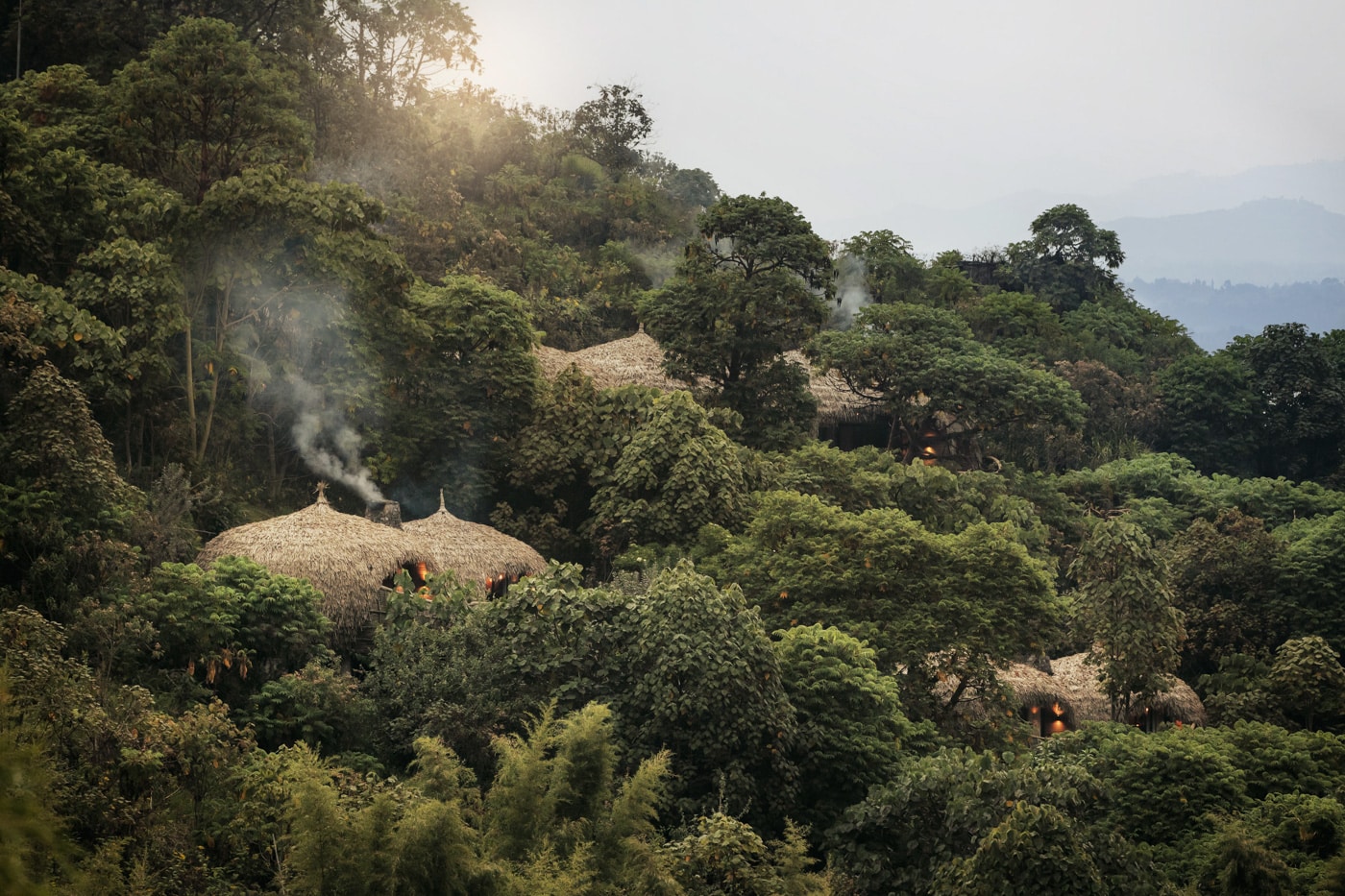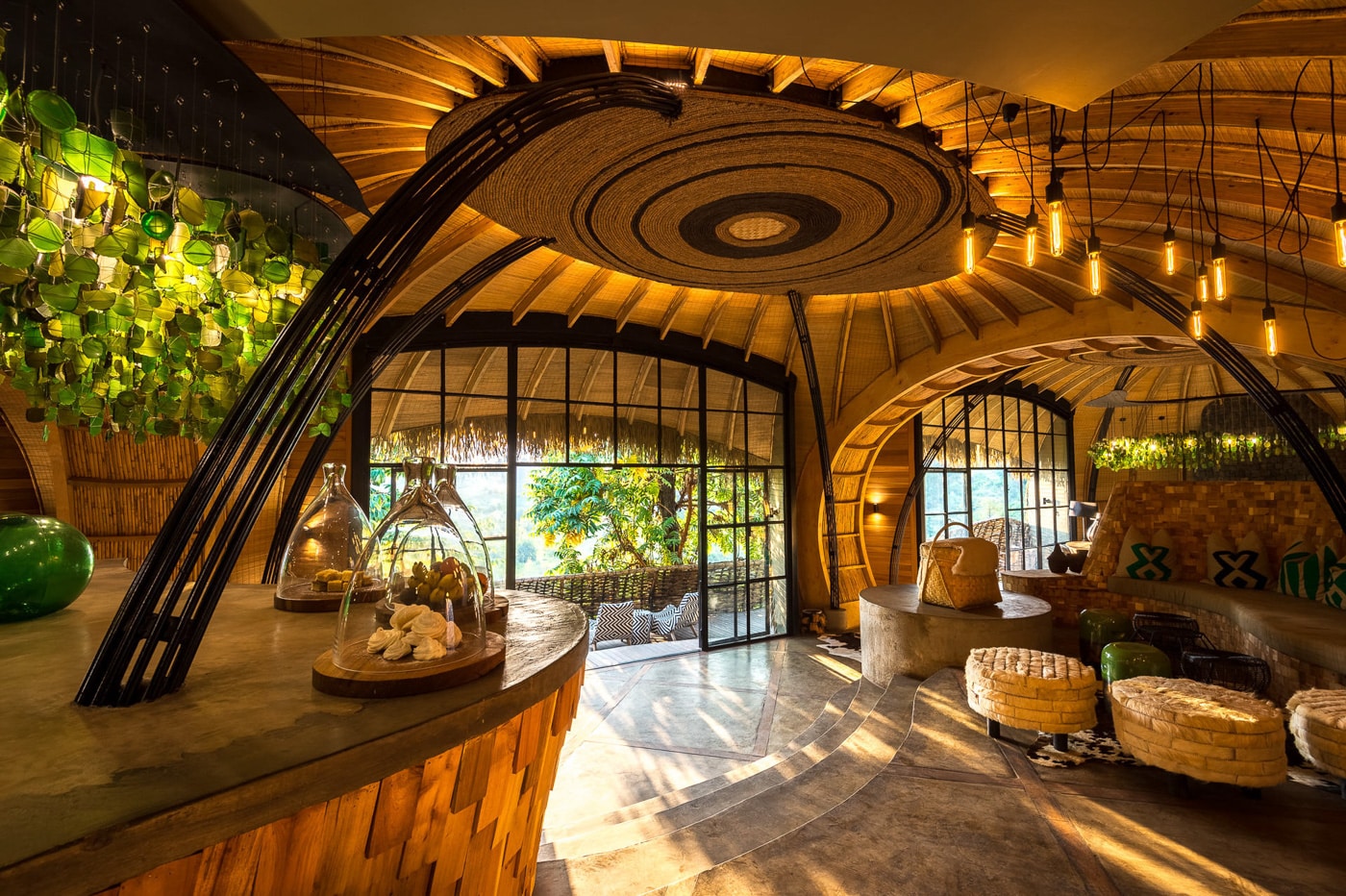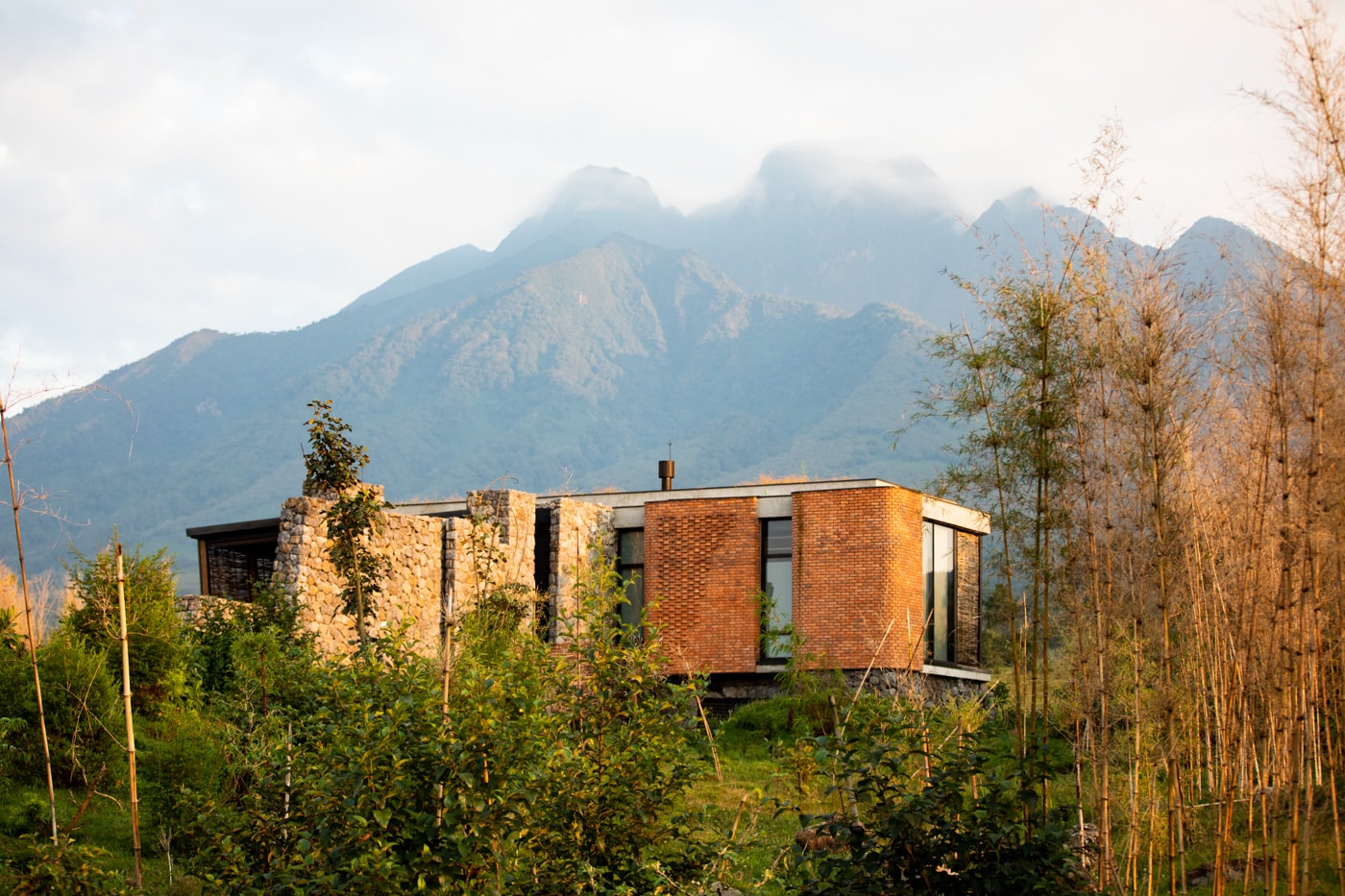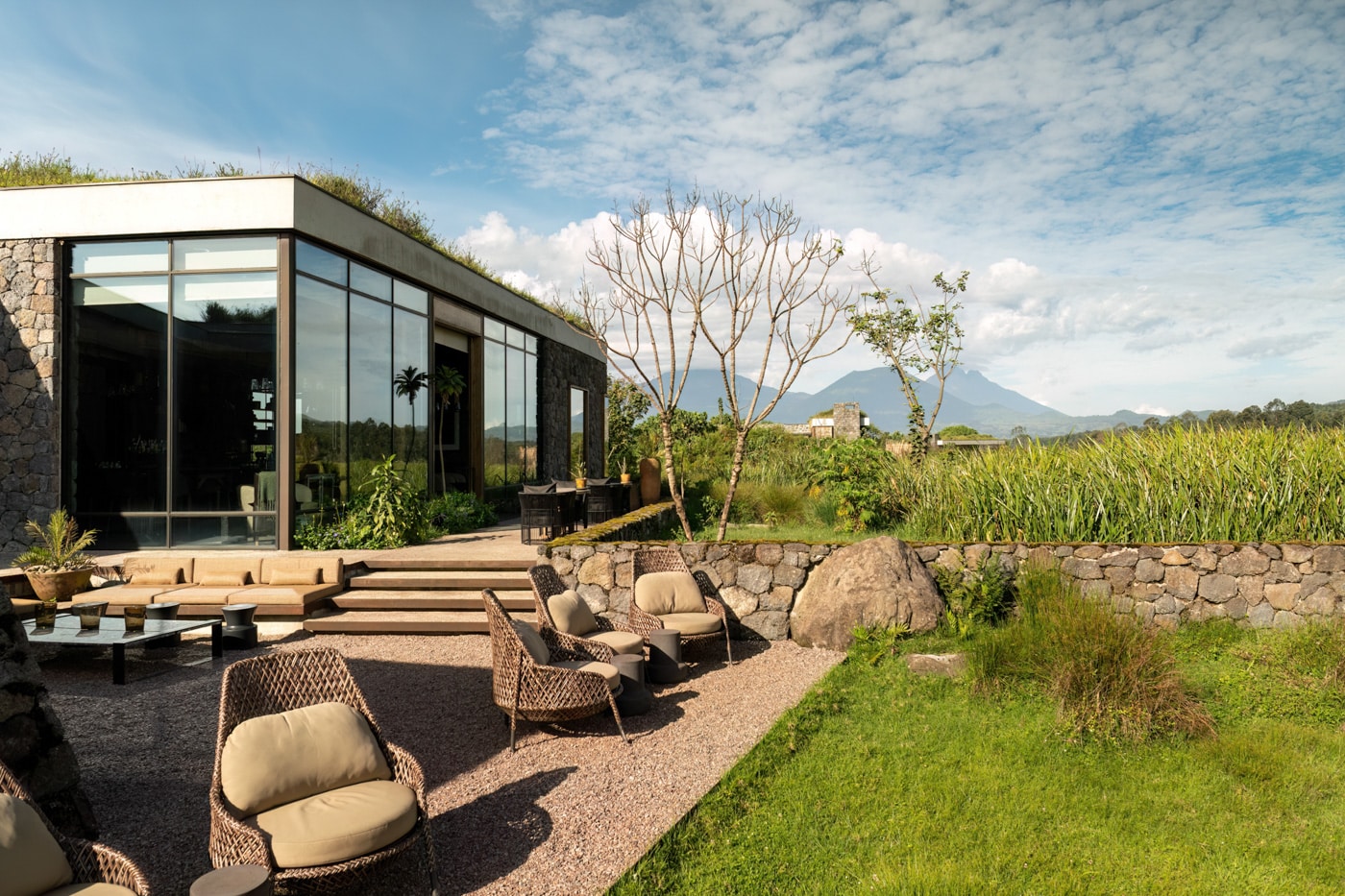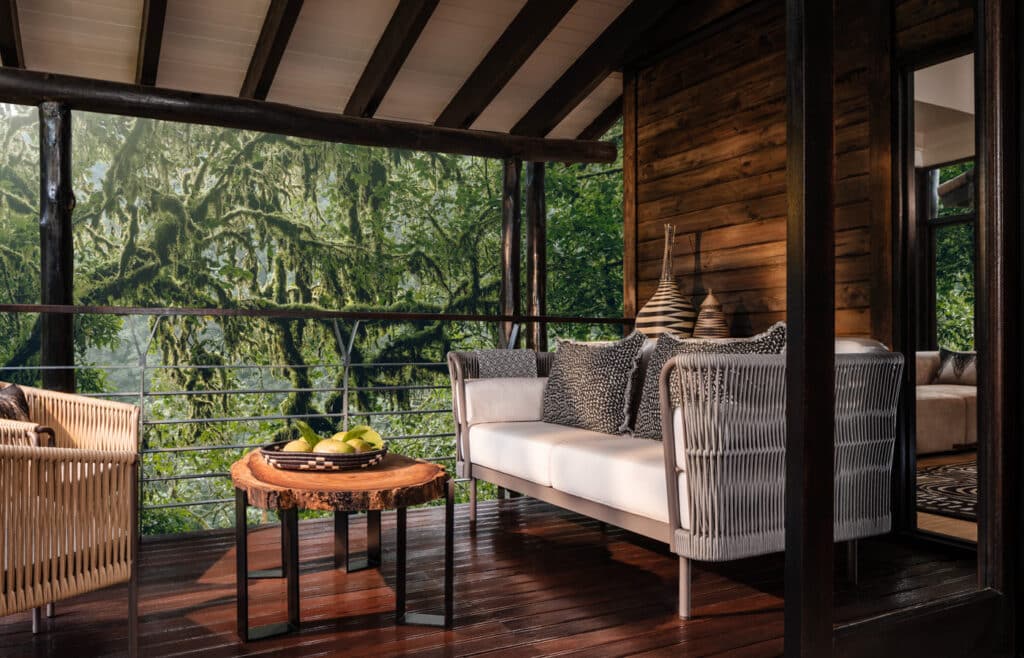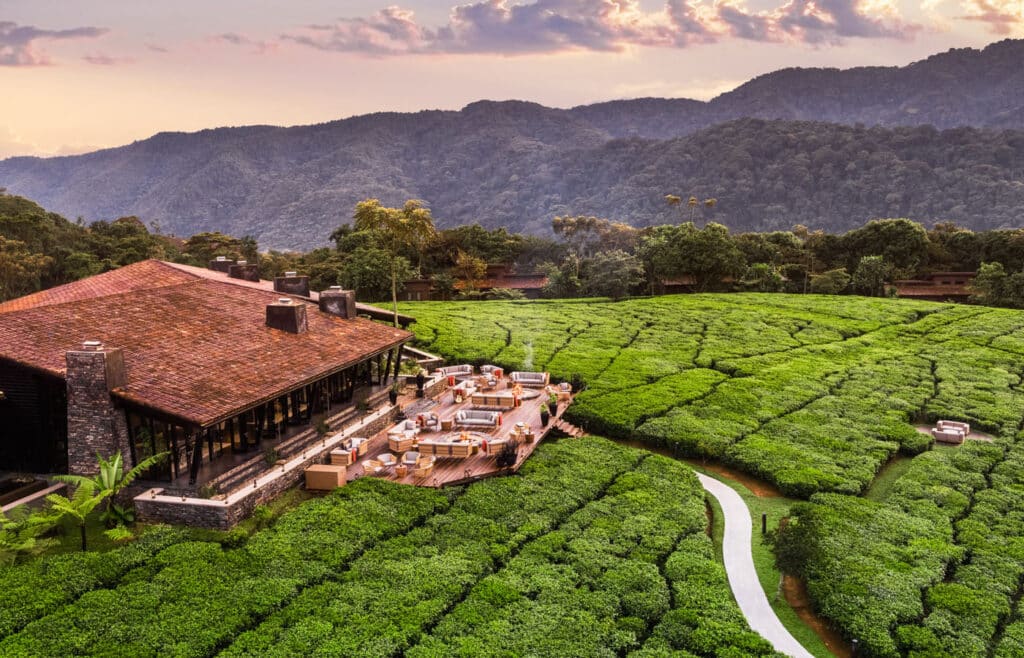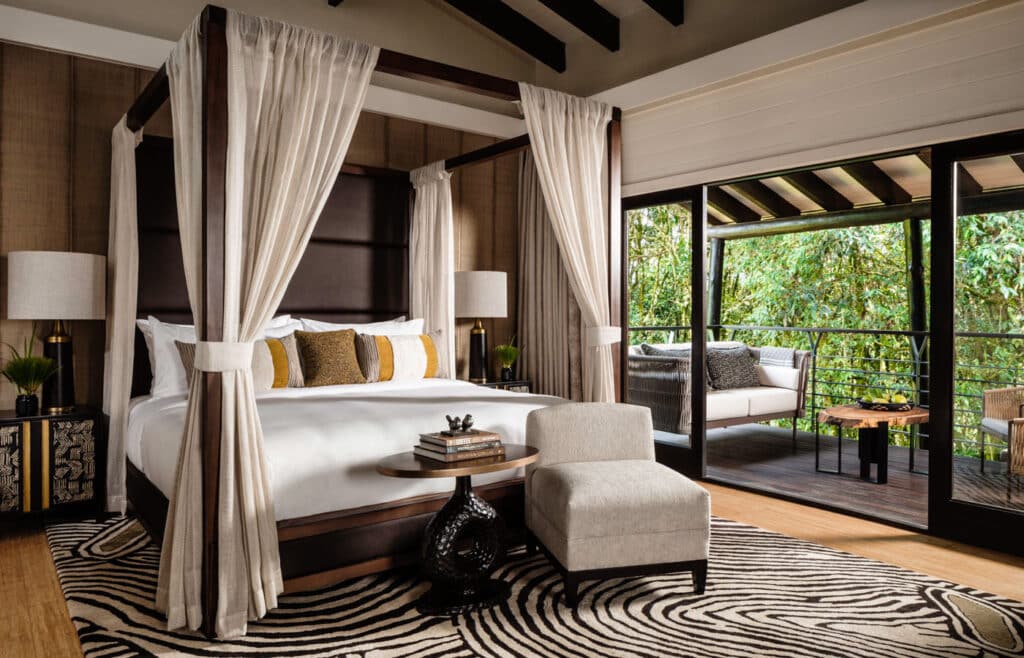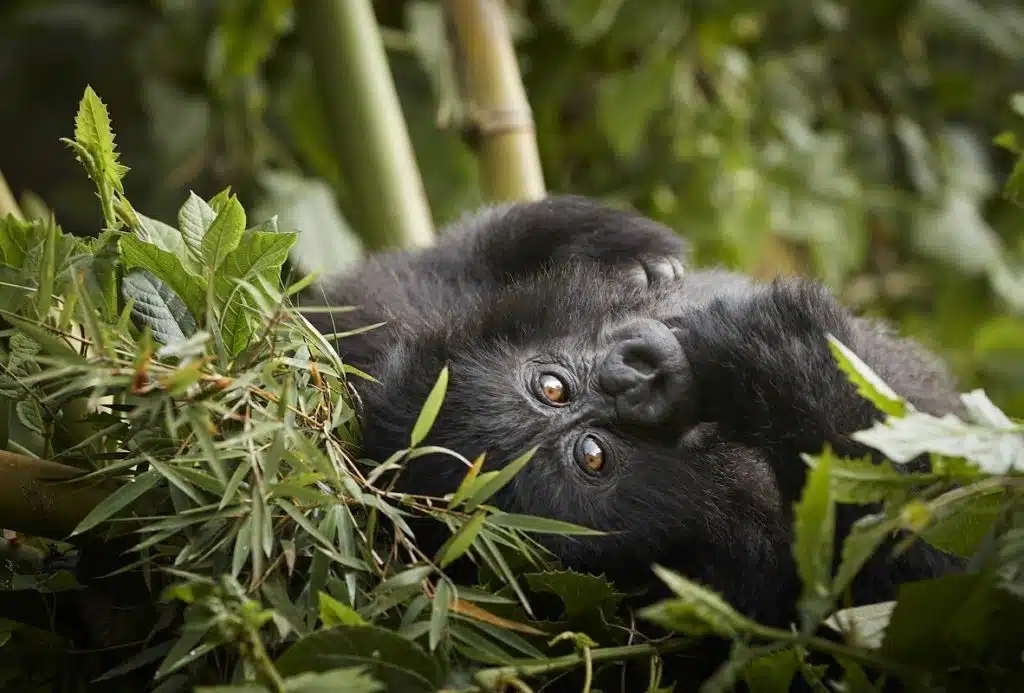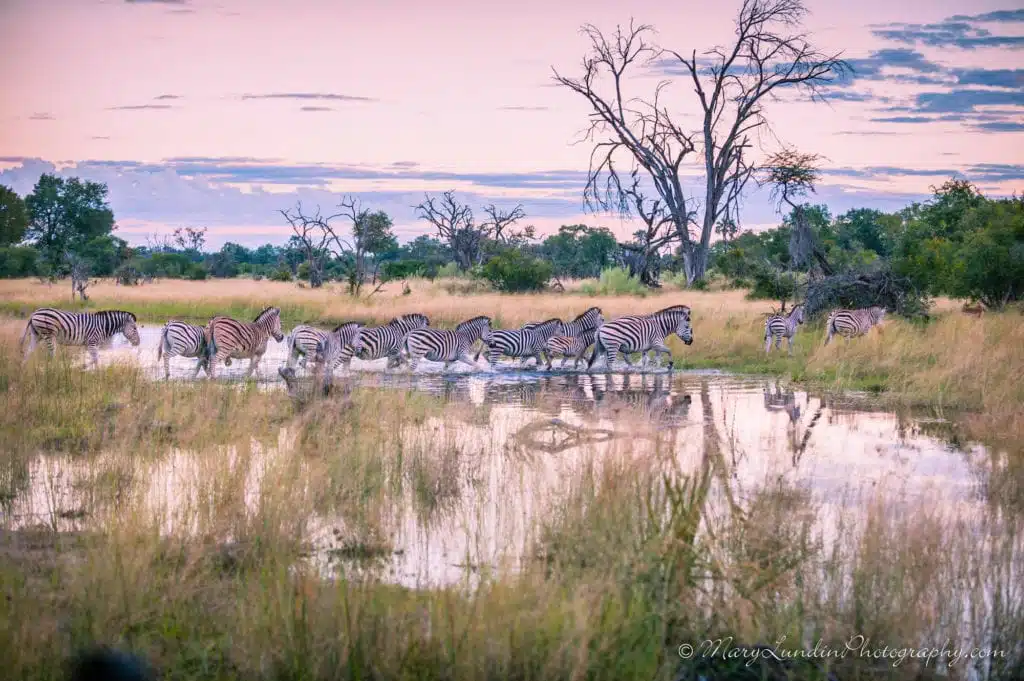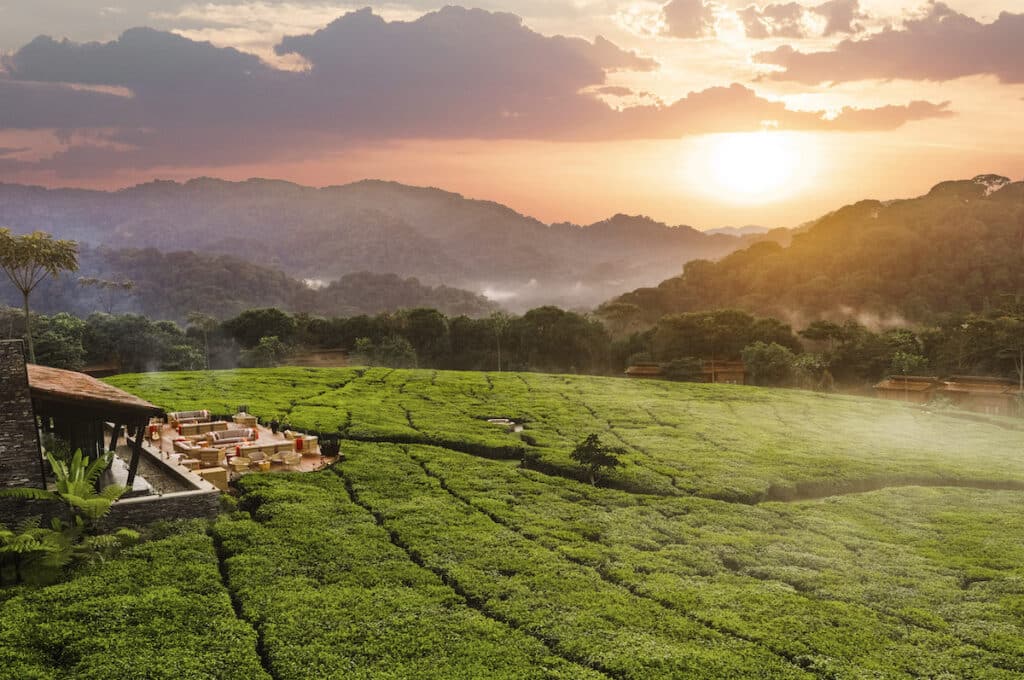VOLCANOES NATIONAL PARK
The Wonder of Rwanda
There is little wonder that gorilla trekking is one of the most memorable and life-changing experiences, or that Volcanoes National Park on Rwanda’s northwestern border is one of the finest places to do it.
Covering just 62 square miles (160km2) of the Virunga mountain range, it isn’t particularly grandiose, but what Volcanoes lacks in size, it more than makes up for in impressiveness. The mountains soar upwards, forming an impressive physical border between neighboring Virunga National Park in the Democratic Republic of Congo (DRC). Capped with berets of cloud formations and swathed in viridescent rainforest, these austere peaks beckon, inspiring wonder as to what may lie on their slopes and within the jungle.
Photos: ©One&Only
As with the DRC, Rwanda has waged a fierce battle against poaching, an ongoing threat that decimated the populations of mountain gorillas. Fortunately, conservation is winning the war, and numbers are stabilizing, even increasing in some areas. Within Volcanoes, gorilla numbers have increased by 50 percent over the last three decades. While organizations such as the Dian Fossey Gorilla Fund – and, of course, the celebrated primatologist who first drew attention to their plight in 1967 – have been responsible for much of the work, it is the locals who have made the most significant impact.
“There is no question in my mind that the answer to saving the last great wild places of the world lies in the hands of local communities.”
– Dian Fossey
Villagers once relied on poaching for survival, their very lives dependent on the income made from the illegal trade. It can be easy to berate and demonize the Rwandans for their part, but the demand came from international sources, and with hungry mouths to feed, it was vital to their families’ wellbeing.
The solution to Volcanoes National Park’s poaching epidemic was as much to protect the gorillas themselves as to offer alternative income for the poachers. And this has become the great success story of Rwanda’s gorillas.
Photos: ©Singita
Lodges employ staff and support coffee and tea plantation cooperatives, former poachers, with their extensive knowledge of the mountain pathways and gorilla habits, have been educated as guides, and it has been instilled in the community that the great apes are a precious and long-term commodity when protected.
Tourism is integral to this success, and conservation has expanded outwards; into the villages through cultural preservation, into the lowlands with their numerous primate species, and throughout the region in myriad ways.
Visiting one of a closest living relatives is a once-in-a-lifetime experience, indelibly imprinting itself into heart and mind. But the knowledge that one is actively protecting these beautiful creatures form extinction and creating enduring opportunities for the region’s communities makes it as rewarding as it is unforgettable.
However, though our mountaintop relatives may be your primary reason for venturing into Volcanoes National Park, this is not the only reason or activity, and much more awaits in this verdant garden of Eden.
- Gorilla Trekking
- Lowland Trekking
- Cultural Connections
- Birdwatching
- Relaxation & Wellness
- Properties of Volcanoes
GORILLA TREKKING
It would be remiss to omit Volcanoes’ primary primate attraction. Gorilla trekking is almost exclusively the sole purpose of visiting Volcanoes National Park.
Taking anywhere between two and eight hours and climbing to as much as 13,000 feet (4,000m), a gorilla trek requires a certain amount of fitness and tenacity, both more than justified by the reward. Though interactions are strictly forbidden and a safe distance is maintained it is not uncommon for visitors to be approached by curious members to the troupe. Guiding is exceptional, and their expert knowledge not only enables them to locate the 12 resident families, it also ensures safety. They carefully brief and instruct guests, ensure they are always in the safest position and have developed an acute awareness of the gorillas’ body language. As if reading sign, they will preempt reactions and movements. An armed ranger is also always present as a last measure, but their intervention is excessively rare.
Beginning at base camp, visitors will wind their way through the lofty rainforest, guides noting flora and fauna along the way, though with the sole focus of attaining the territory of the gorilla. These families have a security detail around the clock, preventing poaching, monitoring health and able to offer the precise location of troupes for trekkers.
Visits are strictly limited to one hour and permits are highly limited, preventing habituation, the gorillas’ wellbeing paramount. Such a brief encounter might seem abrupt when having trekked for several hours, but in the presence of the great apes, time stands still, weary limbs are forgotten, and the magnitude of the moment is intoxicating.
While gorilla trekking is inarguably the purpose for visit, it is so with absolute justification.
“When you realize the value of all life, you dwell less on what is past and concentrate more on the preservation of the future.”
– Dian Fossey
VOLCANOES LOWLAND TREKKING
Gorillas aren’t the only primates in Volcanoes National Park, and in the lowland forests can be found the rare golden monkey.
Endemic to the Virunga mountains and surrounding regions, golden monkeys are far more diminutive than their mountaintop cousins, weighing no more than 20 pounds (10kg).
Guided through the low-lying forests, with cascading waterfalls, bamboo thickets and alive with birdsong, one is filled with wonder as you search for the highly endangered golden monkey.
The charming chatters of these endearing little primates alerts walkers to their presence, and peering through the foliage, it is possible to glimpse their maned faces, thick gray fur and golden rump. Unperturbed by human presence,they are more curious than fearful, gazing down from the trees at their audience from their bamboo-leaf nests.
Living in groups of five to 50 individuals, the golden monkeys feast on the bamboo, berries, fruit and the occasional insect, if it happens to be on the flora they are munching.
Without the altitude or challenge of gorilla trekking, the lowlands offer a more sedate walk. Gurgling streams criss-cross pathways, duiker and bushbuck lurk in the shadows and it is rumored that forest elephant have even been spotted here.
The forest is also filled with birdlife, offering a creature to spot at every turn.
CULTURAL CONNECTIONS
Rwanda is rebuilding from the genocide of 1994, and if creating a more unified future across ethnic groups, but many communities remain fragile.
Here too, tourism is being utilized to benefit Rwanda. Locals have seen the possibilities of a sustainable future, visitors welcomed with warmth and respect. Village excursions reveal a deeply hospitable and highly creative people, quick to smile and welcome you into their lives. Carvings, basket weaving, textiles and other artisanal initiatives are communal affairs, the soft banter of the villagers punctuating the ornate work of deft fingers.
The few luxury lodges in the region have taken responsibility for their place in Volcanoes National Park. From organic gardens that educate the next generation of local green thumbs to partnering with local schools to provide meals and end hunger, numerous projects take place behind the scenes, but all are more than willing to draw back the curtain.
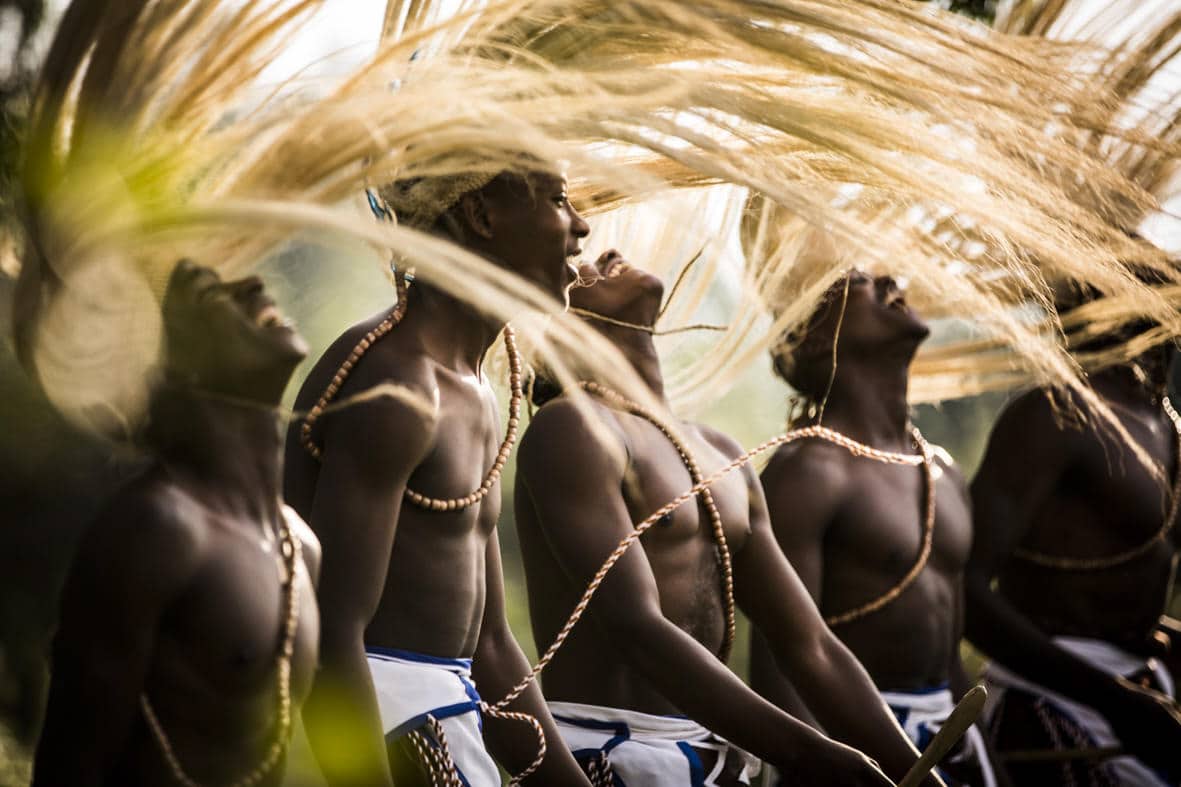
Guests are invited to craft collectives, take place in tree-planting to reforest the native flora, visit local schools to see the effects of private funding, or simply sit back and sample the locally-grown produce of coffee cooperatives. Lodges directly support culture for the benefit of guests, with music and dance often shared, the ebullient performances enabling tradition to endure.
There is a newfound and pervasive sense in Volcanoes National Park that nature always comes first, but local culture and wellbeing comes a very close second.
BIRDWATCHING IN VOLCANOES NATIONAL PARK
Almost 300 bird species reside in Volcanoes National Park, a number of which can be seen from the balconies of your accommodation. Several species are endemic to the region, finding sanctuary in the thick forest foliage.
A kaleidoscope of color darts in and out of the rays of sun piercing the canopy, bird song fills the air, and from the tiny but vibrant to the talented weavers and bat hawk – an expert hunter in the thick forest.
Whether a fanatical twitcher or blasé about birdlife, Volcanoes gives visitors a feathered fiesta to wonder and marvel at. From one’s room or on a rainforest exploration, taking the time to appreciate the life that resides in the treetops is wonderfully rewarding.
RELAXATION & WELLNESS
The challenge of summiting the Virunga in search of gorillas is infinitely rewarded back at ‘base camp’. Luxury lodges provide exquisite respite for weary limbs, indulgent spas providing massages and treatments to wash away the aches.
This is greatly received after a long trek, but relaxation and wellness are continual themes. Guests are invited to morning yoga classes, meals are expertly and deliciously comprised of locally-grown, fresh and organic ingredients, multi-day wellness activations are available, and sumptuous lounges with libraries of books encourage one to enjoy the moment and allow time to gently drift by without concern; it is rare that our western lives bestow occasions so wonderfully indulgent.
Such extravagance may seem incongruous to such a wilderness destination. However, this opportunity to relinquish stress, slow down and disconnect from technology allows guests to sink into their surroundings, immersing in the sights and sounds and gaining a deeper appreciation for every moment, every creature, every flower and every finite detail to be found in Volcanoes National Park.
“We must strive to achieve our dreams. Otherwise, our dreams will be diminished.”
– Dian Fossey
THE PROPERTIES OF VOLCANOES NATIONAL PARK
Visiting Volcanoes National Park solely to visit its most famous residents is an opportunity missed. Somewhat rudimentary lodges provide adequate accommodations for overnight stays and access to the park, yet these often forego the myriad other attractions and intrigues of the region.
A handful of luxury lodges have been established in this northwestern corner of Rwanda, drawn by the gorillas but expanding to encompass so much more.
Private suites are shrouded in the omnipresent forest, cocooning you in this wonderfully fertile ecosystem, and while adhering to sustainable practices and blending almost organically with their surroundings, each provides hospitality of the finest caliber and an acute attention to detail.
Photos: ©Wilderness Bisate Lodge
Photos: ©Singita Kwitonda Lodge
Photos: ©One&Only
Embracing the assortment of attractions that the region has to offer, each property provides an exclusive retreat for its guests, allowing them to wile away the hours in sedate luxury. Gymnasiums, libraries, restaurants, spas and a host of facilities are offered, and a distinct cultural connection is present.
One can explore locally-tended organic kitchen-gardens or enjoy traditional performances in the flickering firelight of sundown. At Nyungwe House one can wander the tranquil avenues of the property’s tea plantations – an initiative established to support the region’s communities, and all residences organize cultural village visits.
Wherever one chooses to stay, while the gorillas remain the primary focus, as with so much about Volcanoes National Park, there is so much more on offer.
Gorilla trekking may be a rugged outdoors adventure, but there’s no need to relinquish luxury to achieve it.
It can’t be denied that gorilla trekking is the undisputed reason for visiting Volcanoes National Park, but if this is the sole purpose, one may depart feeling as if they have only scratched the surface of this captivating and congenial corner of Rwanda.
Let us take you to Volcanoes National Park – contact your Travel Designer today.
